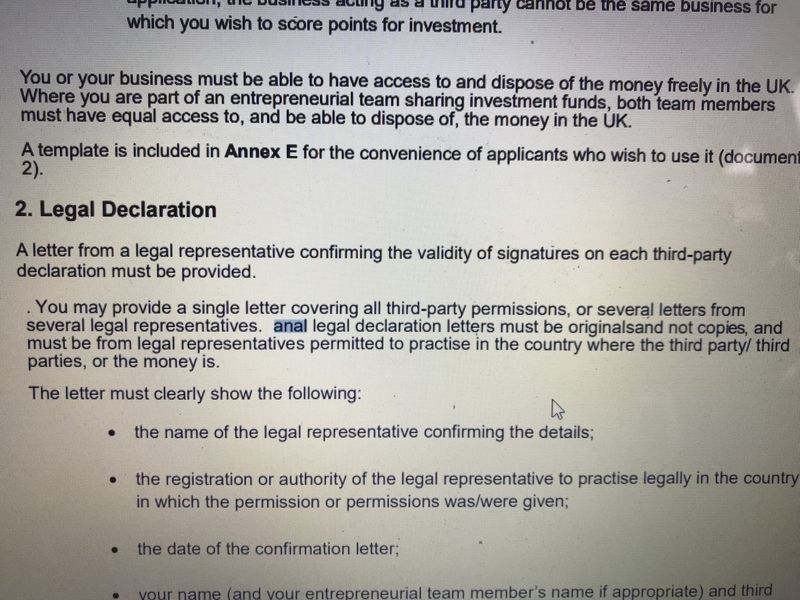
Who is able to change Home Office guidance?


Who has access to Home Office visa guidance? Who can change it?
This guidance is important, designed to flesh out the immigration rules which govern who can enter and stay in the UK, and who can't.
Late last year Edgewater Legal was trudging through the Tier 1 (Entrepreneur) guidance, and in particular the requirement for lawyers to provide verification letters for third party declarations of funding availability. The third party funding rules for migrant entrepreneurs are incredibly prescriptive, as our recent article sets out.
We came across the following paragraph, with the relevant word highlighted (and since removed):
...You may provide a single letter covering all third-party permissions, or several letters from several legal representatives. anal legal declaration letters must be originals and not copies, and must be from legal representatives permitted to practise in the country where the third party/ third parties, or the money is.
Anyone who has a copy of the previous version of the guidance (04/2017) kicking about should still be able to find it (p. 37). Edgewater Legal contacted the Home Office business helpdesk at the time and made them aware of the issue. The wording was changed later the same week.
Now, this doesn't appear to be a typo - 'anal' is some way from 'all', which is what is was changed back to. It raises the possibility that this was an amendment, and was placed in the guidance deliberately.
On the one hand, this is rather heartening. If it was inserted on purpose, it shows what the policy team (or whomever had access to the document) thinks of this requirement. It reminds us that it is not the case workers who make up the rules. Perhaps they also tire of the paranoid fear which seams through these regulations.
On the other, however, it is a concern that guidance can be changed in this way, whether as a result of genuine typographical error, or a rogue caseworker after a few too many shandies at lunch. It raises questions about Home Office quality-assurance processes, and what safeguards are in place to prevent changes to these documents (malicious or otherwise), and upon which applicants are relying for accuracy and staking thousands of pounds in application fees.